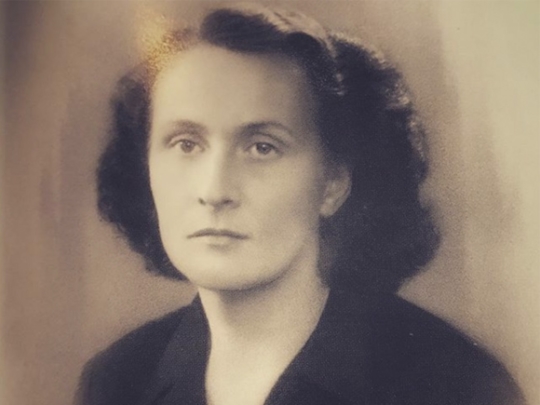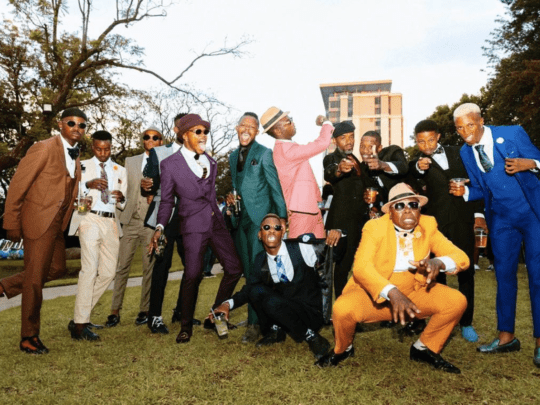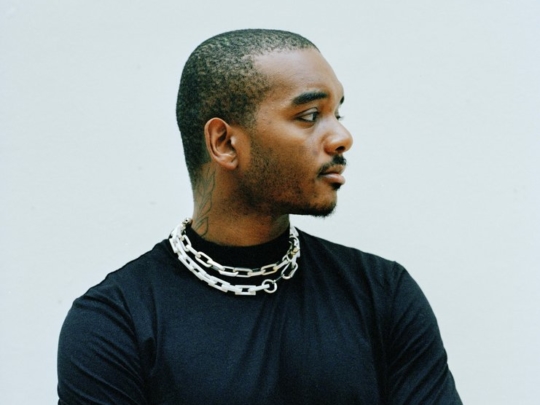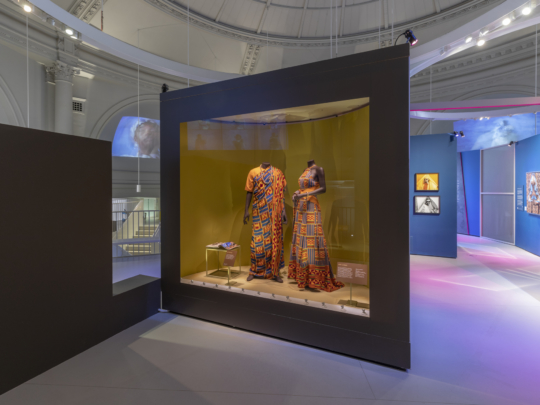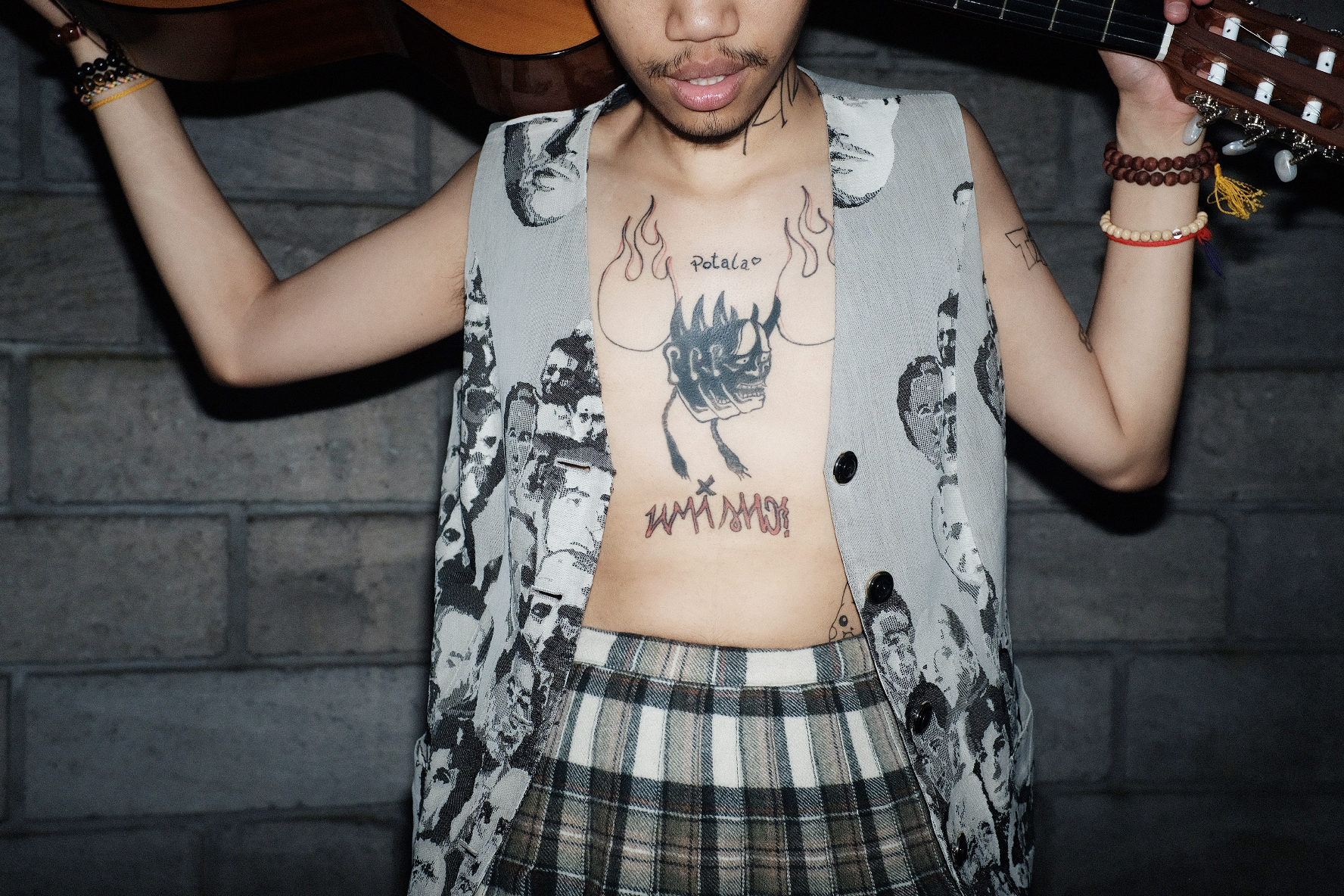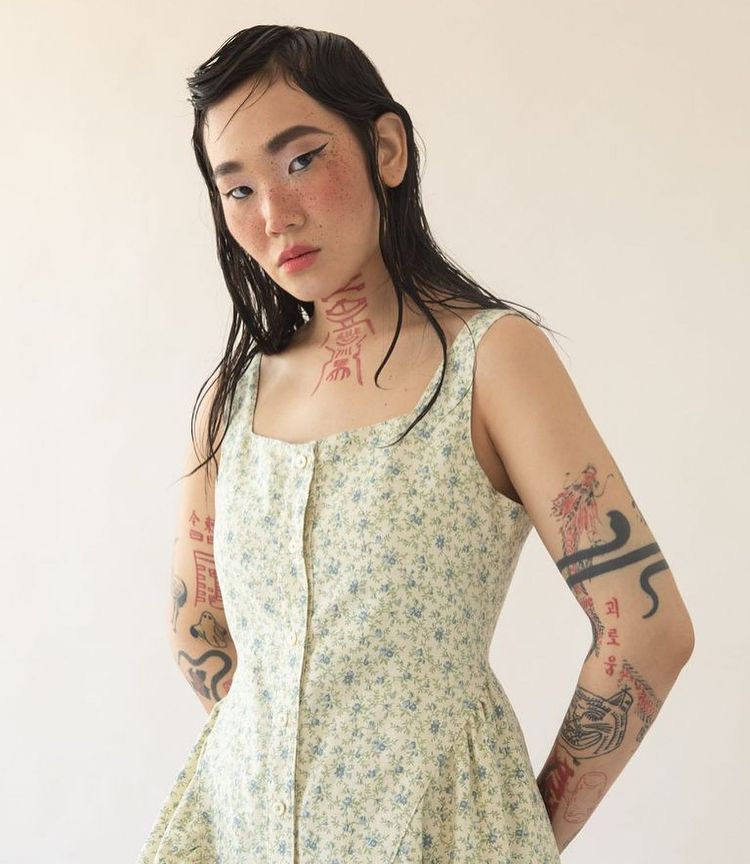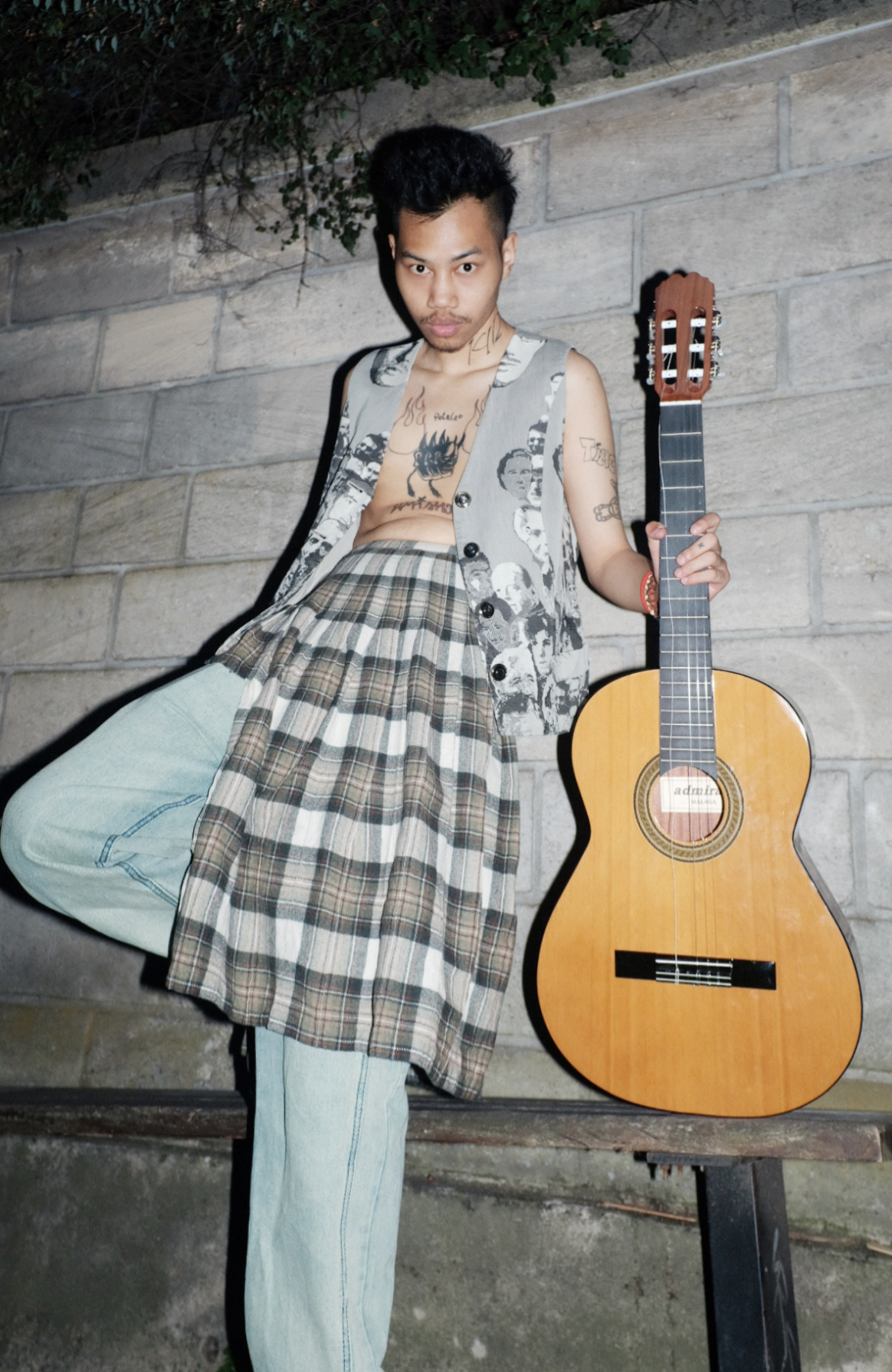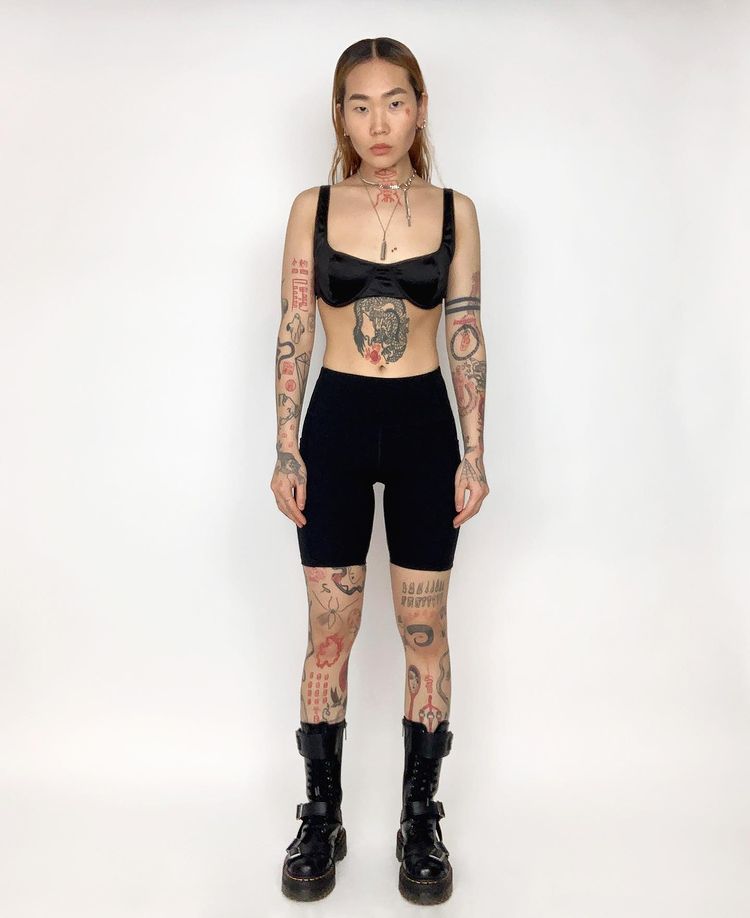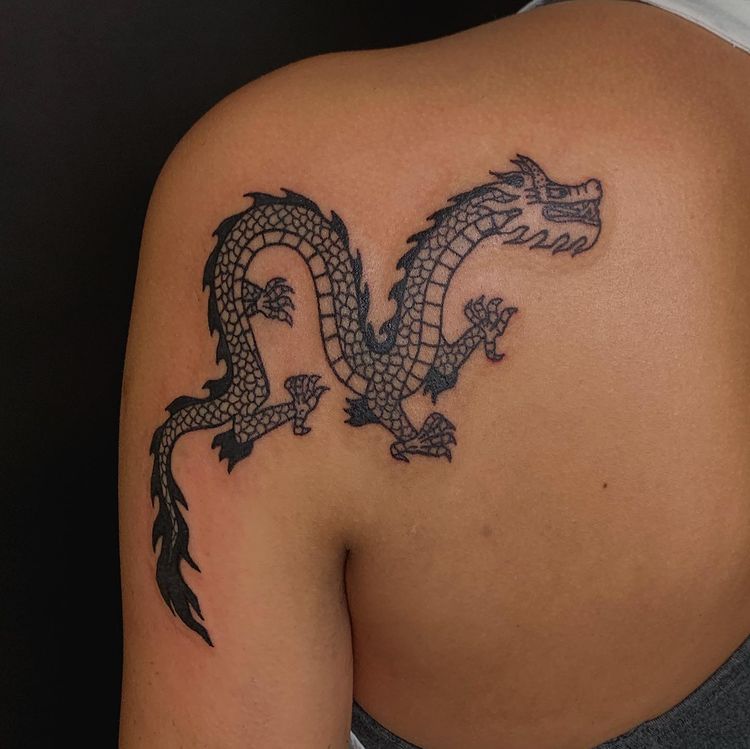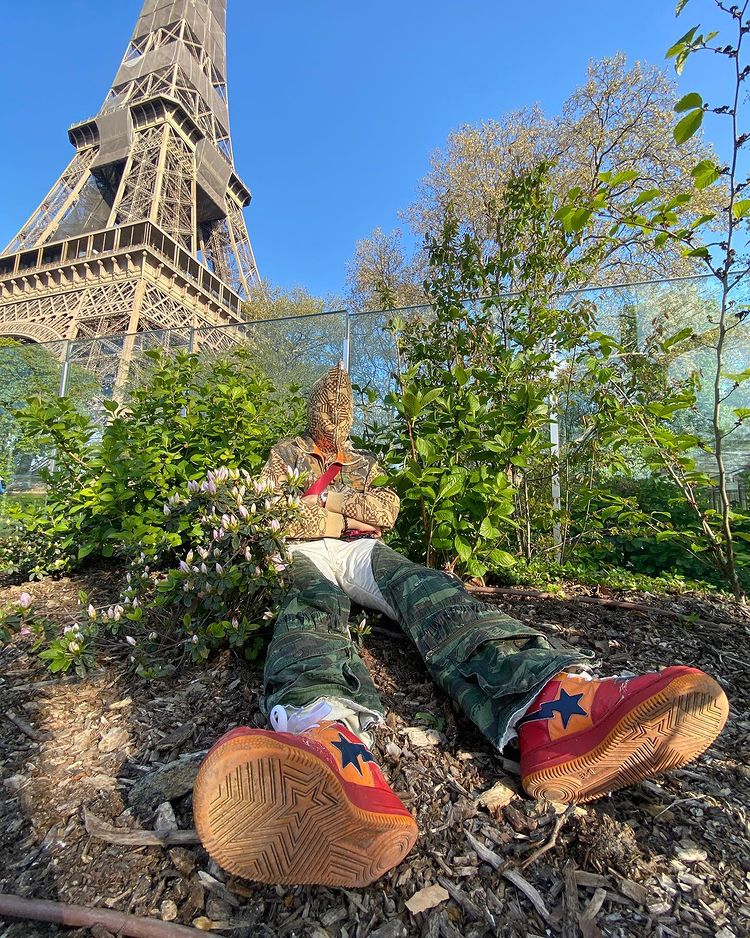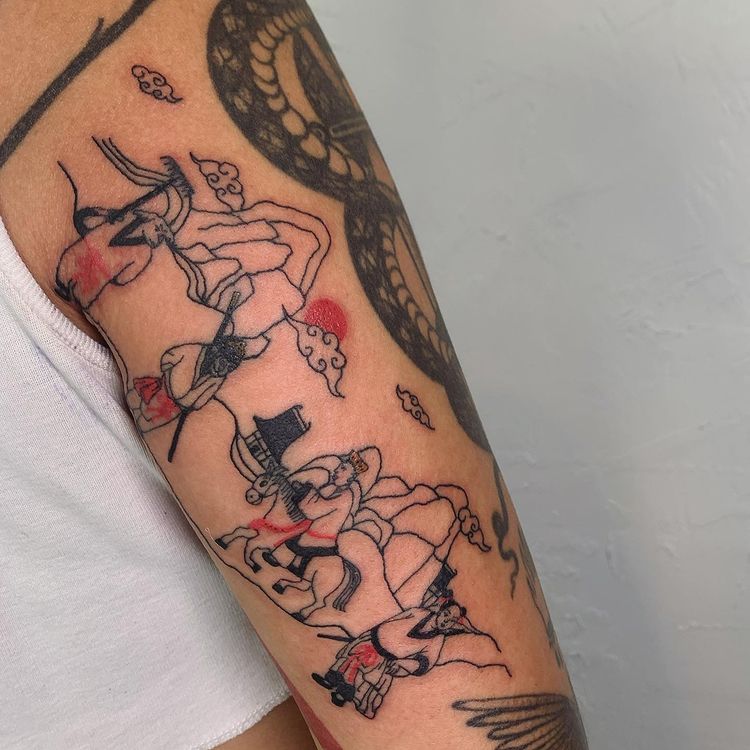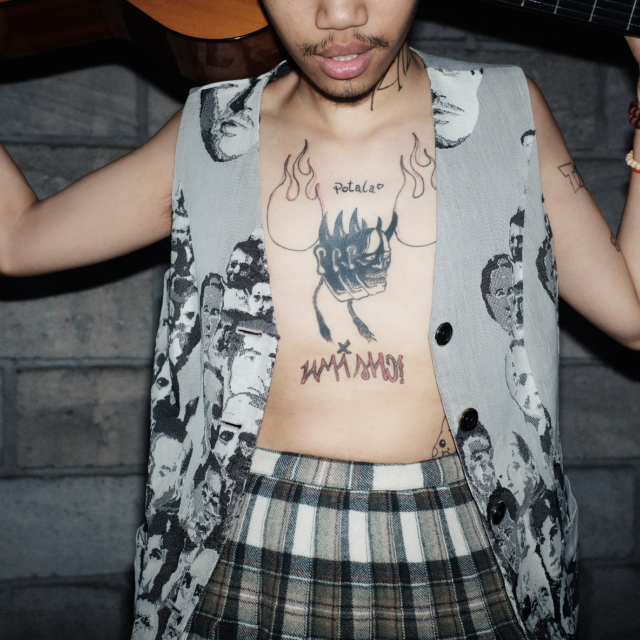How many tattoos do you have now? What is your thought process whenever you get a new one? What does it mean to you to be tattooed?
Adilack: I currently have 25 tattoos. I am going to have a head piece very soon and as many as I can in the future. I used to wish to be transparent but as I grew older I realised I should be proud of who I am. Getting them means being stared at, feared, appear intimidating – and those reactions make me feel alive. Other people’s looks reminds me that I exist. So far my right leg is covered with symbols I grew up seeing in my Asian household. A dragon, a tiger… my left leg is for fun. I let my friends experiment on it. My left arm is for things I am passionate about such as fashion, mangas… and my torso is for everything that I think resembles my personality such as a three headed Oni (Japanese demons) [he laughs].
Park Hyungi: I have lost count, especially because I tattoo too. I often do trades with other artists or tattoo myself. I probably have over a hundred by now. I used to get one at every significant moment in my life, such as my neck tattoo which is a huge talisman in red that I got when my parents disowned me for the fourth or fifth time. It was my way of revolting. I thought “there is nothing you can do about it” [she laughs]. Now I just want to fill up the space. I am an all-or-nothing kind of person. Most, if not all of them, are things I identify with. In either black or red. Many of them are related to Korean shamanism. As a tattoo artist, I have about 80 per cent of my clients that are Asians. I think that’s because there weren’t many Asian artists, especially women, back when I started getting/doing them. It feels kind of wrong to get an Asian tattoo done by a white dude. To me, it’s just a way of regaining control over my own body. Also, a way to scare off men [she laughs] because I have no desire to be conventionally attractive and do not want their attention.
In a way, they are your weapons against the world?
Adilack: Yes, totally.
Park Hyungi: I would say so, yes.
